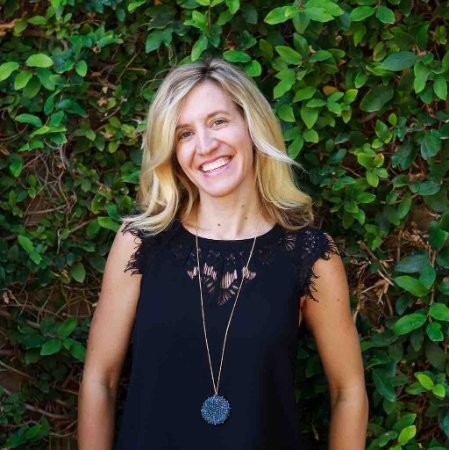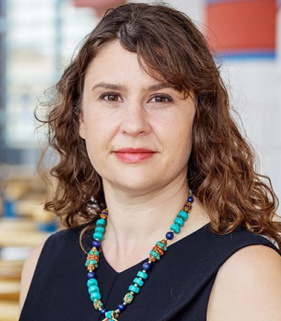
The gender gap in entrepreneurship leads us to ask: why are women less likely to start a business, why do women show less intention to be entrepreneurs and what can be done to encourage them. If we look at the statistics, a more nuanced picture emerges, one of success but also of continuing challenges.
According to the global entrepreneurship monitor 2020/21 Women’s entrepreneurship report[1], the global average of early-stage entrepreneurial activity of women aged 18 to 64 is 11%, representing almost half of activity in this category. But the picture looks less encouraging when we examine more established ventures. At this stage, women represent only about 1 in 3.
30% of women entrepreneurs are expected to employ six or more people in the next five years, as opposed to 48% of men entrepreneurs. It appears that women are setting up businesses, and globally the rates are really positive. Many women are growing their businesses, despite adversity and stereotypes. What is noticeable, though, is that women-built businesses still lag in terms of high growth and high impact.
We spoke to several women entrepreneurs to find out how they became entrepreneurs, their experiences, and why some are seemingly invisible.
The real reason why women go into entrepreneurship
Erin Goodnow is the CEO and co-founder of Going Ivy, a tutoring, test preparation and admissions coaching business, helping young people apply and prepare for college, and providing insights on admission trends for the national media.
Erin’s early career moves consisted of finding a steady job that paid well in marketing and communication and led to many early promotions. But after a while, the job became monotonous, making Erin feel unfulfilled. Ultimately, in her early 30s, she ventured into entrepreneurship because her corporate career left her unsatisfied with little room to grow.
Running her own business allowed Erin to earn some extra money, but mostly it allowed her to do something worthwhile and something she felt was valued by others.
“I started my business to fill that void I had in my paid career. There was very little opportunity for me to use my skills or develop further. Later, when I had my first child, I thought, why would I put my child in childcare for this job, I did not feel passionate about. And so I continued putting more hours into my own business.”
Erin loves the freedom the business affords her to schedule her days. But she warns against thinking running your own business is the easy option.
“At times running your own business is harder. I work nights and every weekend because when I don’t work, my clients might have an unanswered need, or my team might not feel supported. I feel guilty about not giving the business my full attention.”
According to Erin, there is a lot of excitement when you first start. But there are peaks and valleys in motivation and progress. Life is very dynamic, and Erin thinks one of the most important lessons she has learned in entrepreneurship is to be flexible and allow change to happen, to anticipate changes and embrace them even.

Born into entrepreneurship
Not all entrepreneurs get into entrepreneurship by chance. “Growing up, my father built his own business, and I worked there in the summers. My mother was also very creative, and you could say entrepreneurial. So, entrepreneurship was always in my background,” says Liisa van Vliet, founder and managing director of Drop-Tech, a scientific instrument company that uses droplets for drug development and the diagnosis of diseases.
As an adult, doing a PhD in biochemistry, she would enter competitions that taught students to create and validate start-up ideas. To Liisa, these competitions were incredible fun, and she discovered her talent for figuring out how to make business ideas work in theory and by considering strategic partners.
Liisa pursued several different career options after finishing her PhD, including teaching and consulting, but could not find proper satisfaction in any of them.
“What really excited me was ideas bubbling up around the science I had been involved in. And when I left the bench, I always missed the science and research. That’s why I’m still now with one foot in research here at Cambridge University and at the same time involved in various start-up ideas.”

Did I deliberately choose entrepreneurship? I think it chose me.
Bingbing Chang is the founder of a multi-million-pound property business, which she started with her husband a few years ago. Similar to Erin, she did not deliberately become an entrepreneur.
Growing up in Communist China, she lived in relative poverty coupled with very low expectations placed on her because of her gender. Bingbing remembers having an overwhelming desire to be seen and to be appreciated, which led her to work incredibly hard from a young age. This hard work paid off in many ways and led to an exceptionally successful corporate career in later life.
But her early childhood experiences of feeling unappreciated never quite left her. In hindsight, Bingbing says she was a high achiever to compensate for her low confidence, always relying on external validation. Eventually, after some soul-searching, she realised she had never loved her job.
Her jump into entrepreneurship was more due to chance and circumstances, including the birth of her first son. It upended the idea in her head of what life was supposed to be: to have a successful career, to be a good wife and poster-perfect mum. “Suddenly I realised I couldn’t have it all, and I needed to make my own choices instead of what media and the society is making me think, so I went in search of what options I have. And I started asking some deep-rooted questions. Entrepreneurship has been an incredible personal growth journey for me, but despite my successes, I still don’t feel I’m an entrepreneur.”
Feeling like a fraud, an impostor and not being true to yourself
Many women entrepreneurs find it hard to align with the world’s image of women entrepreneurs. Erin says: “I run a consulting business and using the word entrepreneur to describe myself was hard for me. I used to say I’m helping people with their college applications. And only recently have I started telling people I’m running a business. Interestingly, it has changed how people treat me in a professional setting. This was a real hurdle for me to feel proud of what I have achieved.”
Sharena, who founded her own property management business, agrees that we often have the wrong idea of what a successful start-up should look like: a tech start-up that gets sold for millions of pounds after a short time. But most start-ups look nothing like that. “I like to enjoy what I do on a daily basis, and my property management business allows me to do that. Entrepreneurship affords me that freedom to follow my passion. The only downside is I do not always have the same freedom as those who are employed. My work is around the clock and my phone is always on for tenants and landlord matters.”
Monique Boddington, faculty at Cambridge Judge Business School with a research interest in entrepreneurship and gender, adds:
“Last week, I was considering two pieces of entrepreneurship in the popular media. One was the annual return of The Apprentice, which seems to run the stereotypical gauntlet – from the outfits to the often aggressive and frequently pushy behaviours and ultimately risking it all for the chance of winning. The second was much more unexpected; it was a piece on women entrepreneurs making a career out of direct selling.
“What caught my eye was how the characterisation of entrepreneurship in both cases does not align with my understanding of what entrepreneurship is. I don’t believe either definition helps women, particularly if we want to encourage more high-growth and high-impact women-led ventures.
“I don’t wish to downplay the success and hard work of these women selling everything from cleaning products to nutritional supplements to subsidise their income, but I found the characterisation of them as entrepreneurs somewhat questionable. Neither do I find the masculine norm accurately presented, which disenfranchises women and also many men.
“In the popular media, entrepreneurship has become a very specific narrow caricature driven by deeply socially embedded stereotypes. At the same time, it has come to mean almost any form of arbitrage, for example, the reselling of thrifted clothing online.
“In both examples, entrepreneurship is defined in terms of trading goods to gain profit and the riskiness of this. By thinking of entrepreneurship in these terms – high growth and high impact – entrepreneurship is associated with certain social norms, largely associated with men. Women become associated with lower growth industries and ventures. A division is thus created between the types of entrepreneurship men do, and the types of entrepreneurship women do in new gender parity in entrepreneurship.”

It looks like women are struggling to reconcile what the world wants them to be and who they feel they truly are.
Bingbing describes the feeling of having disconnected images of herself: “On one hand, I want to be this attractive woman that’s looked after. It’s not that I want to be that person, but that I think it is expected of me. I found that these expectations stood in stark contrast to the hustling and determined woman I had become. In the business world, you always have to guard yourself. Being a woman has really helped me become an excellent negotiator throughout my career. To be noticed, you have to be extra vigilant, be attuned to other people, read the room. I think women, for whatever reason, are better positioned for these skills than men. Generally speaking, tuning into emotions comes more natural to women, and that is a powerful trait.”
The problem with self-doubt for women entrepreneurs
Sharena, who runs a podcast for entrepreneurs, says what she has learned from interviewing many successful women entrepreneurs is that they are all resilient, that they all suffer from imposter syndrome and self-doubt, and that they really feel the pressure to perform 100% in every aspect of the business.
On the other hand, men appear happier to give things a try when they know they only understand 60% of the job they are trying to tackle. They are also far happier to admit that certain parts of their business are not their strength and that someone else is managing that.
Sharena says: ”Some women entrepreneurs I spoke to feel like they are the only ones suffering with imposter syndrome. But this is far more widespread from the conversations I have had with women entrepreneurs and even world leaders.”

Monique, our CJBS faculty, adds: “The question we also need to start talking about, which appears a little of an oxymoron as we celebrate women entrepreneurship, is why we are still just talking about men versus women. There is as much difference between two businesses built by women as there is between those built by a man and woman.
“Many stereotypes that inhibit women in their entrepreneurial journey also do not reflect many men’s experiences and inhibit their entrepreneurial activity. When we talk about diversity, we need to consider other metrics: education, financial means, gender as non-binary, race, ethnicity, neurodiversity and sexuality. Not all women’s experiences are the same, and while definite improvements have been made in terms of increasing women entrepreneurship, this has too often been for those most advantaged by their personal situations.
“Entrepreneurship can empower individuals and can drive a positive impact in the world. However, to truly support women in entrepreneurship and high growth and high impact women-led ventures, we need to make sure that we are focussing on women from diverse backgrounds. We must understand them not as one succinct group who have different needs and require different support when it comes to helping their entrepreneurial journeys.
“As we can see from the many examples of the women in our community, each experience is very different. Reframing the conversation around redefining what exactly entrepreneurship is will also help move away from traditional gender stereotypes, which would be to the advantage of all genders and, in turn, I believe unlock untapped entrepreneurial potential.”
Fundraising for women entrepreneurs
Before Bingbing came to Judge Business School to study entrepreneurship, she had a clear idea of what it would be like. “I thought I would work hard, create a business, become a billionaire. But now I see that it’s only a sliver of what it might mean to be an entrepreneur; there are so many other options. And actually, I now know it is definitely not what I want to do. My heart doesn’t lean that way.”
Erin agrees: “Not having to raise funds for my business is important to me. I am proud to invest in the business from what I earn and control the vision and what makes us different from others. Of course, Judge Business School has given me a lot more confidence in my numbers, presentations and strategies, so if I ever wanted to pursue an outside investment, I would be ready.”
Sharena adds: “We hear a lot about discrimination of women entrepreneurs when it comes to VC-funding; we see the statistics and hear the frustration on the ground. But I have never gone for funding, so I don’t know the truth. My feeling is that just the bad statistics out there could be the reason why some women consider becoming an entrepreneur too risky.”
Liisa is proud to have bootstrapped her biotech venture and admits to being risk-averse.
“I’m running Drop-Tech alongside being a scientist, doing research and teaching. I also started another venture in May last year, a company which is creating enzymes that can help recycle plastic. Going forward, I’m looking to launch one, possibly two, new companies soon: the first is in the Alzheimer’s field, the other a social enterprise in Latin America, which aims to help indigenous communities do “Distance Tourism” or experiential tourism that will fund projects for the community.
“The plastic recycling venture will require investment as a lot of money is needed to develop the technology. Luckily, I have learned a lot from my first venture. You always make a lot of mistakes the first time that you would not repeat.”
Most inspiring entrepreneurs
We asked our women entrepreneurs about inspiring women entrepreneurs and found some of the answers surprising. None of our entrepreneurs could relate to lists of famous entrepreneurs appearing in many entrepreneur magazines.
Rather, our women entrepreneurs take inspiration from friends and women in their lives that feel relatable. “My role models are not big-shot magazine cover celebrity entrepreneurs, but women that have turned entrepreneur from an employee. My role model is a friend who, over the years, has become a mentor; she was a dentist most of her life, came from a deprived background. She is a pattern breaker who changed her entire life story. She started her own business to provide for her own children. She truly inspired me, because she is so down to earth, no fluff or fancy dress. It’s people that have found their passion,” explains Bingbing.
Erin adds: “I feel I need to find the path for myself, and the education and my personal support helps me to do that.”
Sharena mentions her recent experience browsing the entrepreneur book section in a local book store: “I was disappointed to see so few women entrepreneurs that had written autobiographies. But possibly it leads back to my earlier point, that women are too busy running their business and trying to do 100% the best job. It leaves no time to write books. These inspirational women are all invisible. But it would help all women if successful women entrepreneurs would show more of themselves, as we understand the importance of positive role models.”
Sharena has interviewed many successful women and men entrepreneurs. For her, Holly Tucker of notonthehighstreet and Holly and Co stands out. “Holly Tucker MBE had a brain tumour and went through a divorce and still created a business out of passion and then helped many other business owners to succeed. To me, she is inspirational for so many reasons, but the one I must mention is that she doesn’t want to retire until she is 90 because she likes the hustle.
“Also, many of the women speakers that we encountered during the study of the Masters in Entrepreneurship were extremely expiring, for example, Megan Neale of Limitless, journalist and media consultant Alina Trabattoni and Sarra Achouri of Obrizum.”
The best advice for women entrepreneurs
“There is a big community of women entrepreneurs out there. Make sure you seek them out and connect with them on LinkedIn or Instagram. Don’t let your gender put you off starting a business and find a good mentor,” says Sharena.
“I was never great at handling change; I would fight it. But in business, it’s important to adapt and manage change because often it will be positive and push you toward growth, either professionally or personally,” is Erin’s advice.
“Be careful who you take advice from; people have their own stories and ideas,” says Bingbing. “People asked me how I could leave my successful corporate career behind. They were questioning my decisions with the best intentions. But ultimately, they look at it from their perspective, not mine. In childhood, I could never trust myself; I thought other people would know better than me. Now I would say trust yourself. And be open to ask for help.”
“It has to be your way of doing things. How you set up your venture needs to be aligned with your values. You need to carefully and clearly define your value proposition and the impact you want to create to help you move forward. It is far harder than it sounds, “suggests Liisa.
In terms of advice, Monique suggests that looking at a different perspective of defining entrepreneurship might help. “Entrepreneurs are often identified by their willingness to deal with uncertainty. Uncertainty is a situation in which not only the odds are unknown, but the outcome is also unknown. This is for this reason that entrepreneurship can lead to massive successes, as seen over the past decades.
“Entrepreneurship is the process of doing something different, something innovative, something new to drive the creation of value, both monetary and societal. Understanding entrepreneurship in these terms and how to encourage individuals working under conditions of uncertainty can help us support more women building high growth ventures.
“We need to shift the conversation away from the performance of specific behaviours towards entrepreneurship as a process that enables individuals to build high growth and high impact ventures aligned with their own motivations. Something that always struck me talking to successful entrepreneurs was not just the drive for profit but also the drive to change something, to solve a problem, to help people, to respond to a grand challenge. In these terms, we build more inclusive entrepreneurship.”

About Monique Boddington
Monique Boddington is Associate Faculty at Cambridge Judge Business School and Deputy Director of the Master of Studies in Entrepreneurship. Her research interests are entrepreneurship; lean startup and pivoting; gender; entrepreneurial strategy; and the application of sociological approaches.
She teaches Prototyping and Product Development as well as Research Methods in the MSt in Entrepreneurship.
[1] https://www.gemconsortium.org/reports/womens-entrepreneurship


Leave a Reply